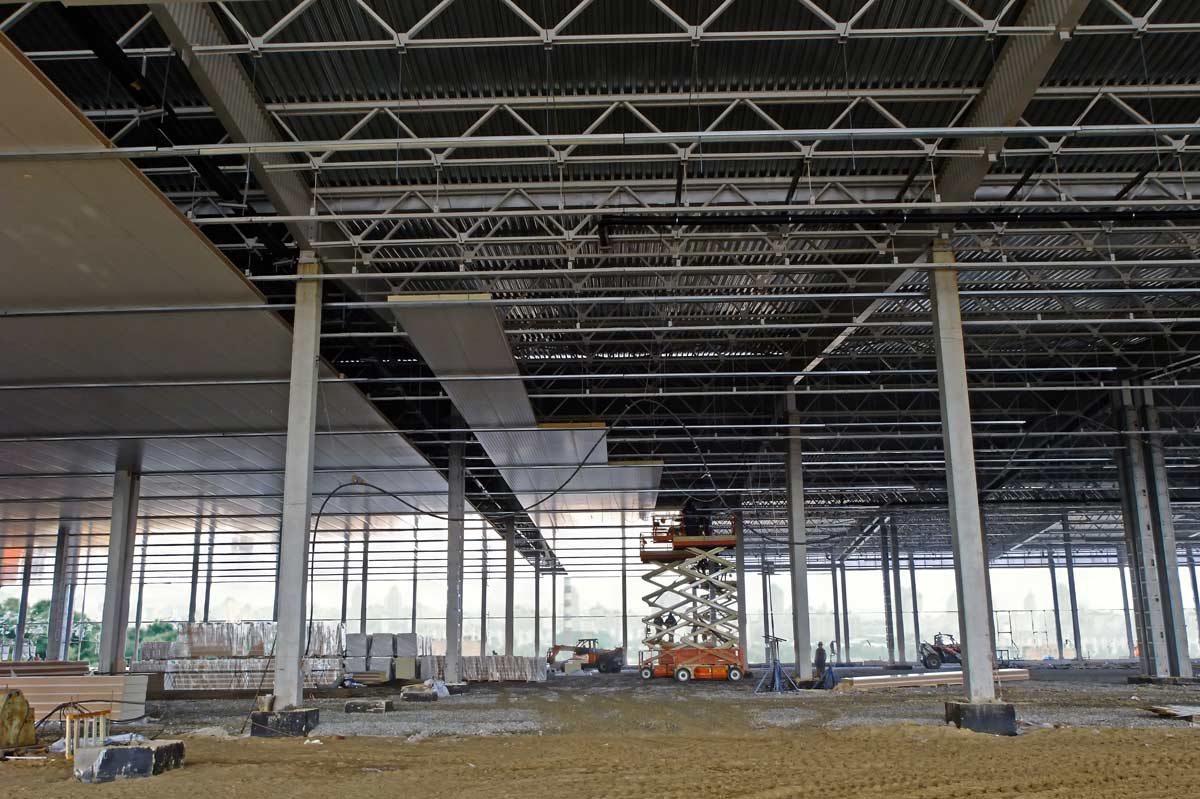Prevailing Wage
Protecting workers’ paychecks
What is Prevailing Wage?
Prevailing Wage laws require construction contractors who work on publicly funded projects to pay construction workers at least the Prevailing Wages and benefits for the area where they are completing the work.
Prevailing Wages are the actual hourly wages, benefits and overtime to be paid to workers, as calculated by the U.S. Department of Labor and the Pennsylvania Department of Labor and Industry for the construction trades.
Most projects funded by local, county and state governments are subject to Prevailing Wage laws.
These laws keep contractors from lowballing worker wages and benefits on projects. This helps ensure that workers are fairly compensated and quality construction work is performed.
Davis-Bacon Act
Contractors and subcontractors working on projects covered by the Davis-Bacon Act must pay their laborers and mechanics employed under the contract no less than the locally Prevailing Wages and fringe benefits for corresponding work on similar projects in the area.
The benefits of Prevailing Wage
Benefits All
Multiple research studies have shown that Prevailing Wage laws benefit all workers, construction project owners and the general public. These studies repeatedly demonstrate that Prevailing Wage laws do not result in significant cost variations on construction projects and, in fact, result in savings due to an investment in the workforce and the resulting higher-quality construction. Furthermore, these reports show that in most instances, it is the cost of the building materials that drives up the price of a project – not the workforce.
Boosts Local Economies
Improves Outcomes
Prevailing Wage Studies
Do not simply take our word for it about the benefits of Prevailing Wage. Read some of the latest studies that show Prevailing Wage is good for all parties involved.
The Economic Impact of Prevailing Wage Law Repeals on Construction Market Outcomes
Evidence from Repeals Between 2015 and 2018
Released in 2023, this Illinois Economic Policy Institute and Project for Middle Class Renewal at the University of Illinois at Urbana-Champaign study found that the states that repealed their Prevailing Wage laws created negative consequences for construction workers, businesses and communities. Construction worker wages, benefits and productivity fell behind states with Prevailing Wage laws. Additionally, states that repealed the law had more on-the-job fatalities, a higher percentage of residents who rely on government assistance programs and fewer projects completed by local contractors – all without saving taxpayers money.
The Effects of Repealing Prevailing Wage in Wisconsin
Impacts on Ten Construction Market Outcomes
This Midwest Economic Policy Institute study from 2020 showed that the repeal of Prevailing Wage laws hurt the State of Wisconsin. Construction worker income growth did not keep up with neighboring states, construction worker health insurance coverage declined, the construction workforce became less diverse, and more construction workers needed government assistance programs. Additionally, the Wisconsin Department of Transportation had fewer bids on projects and more projects awarded to out-of-state contractors.
What the Research Tells Us About the Costs and Benefits of Prevailing Wage Laws in Colorado
This report examined the results of past Prevailing Wage studies and found that 91 percent of studies revealed that Prevailing Wage laws do not increase construction costs and they benefit local contractors, employers and the local economy. They also helped reduce injuries, discourage underground labor practices (paying workers in cash) and increase the amount of income tax collected.
The Impact of Montana’s Prevailing Wage Law Effects on Costs, Training, and Economic Development
The 2023 Midwest Economic Policy Institute study showed that Montana’s Prevailing Wage law positively impacts the state’s economy and delivers great value for taxpayers. It levels the playing field, promotes job quality, boosts investment in apprenticeship training programs, improves worksite safety and stabilizes construction costs.
Project Labor Agreements
A Project Labor Agreement (PLA) is a prehire, collective bargaining agreement with one or more labor organizations that establishes the terms and conditions of employment for…
